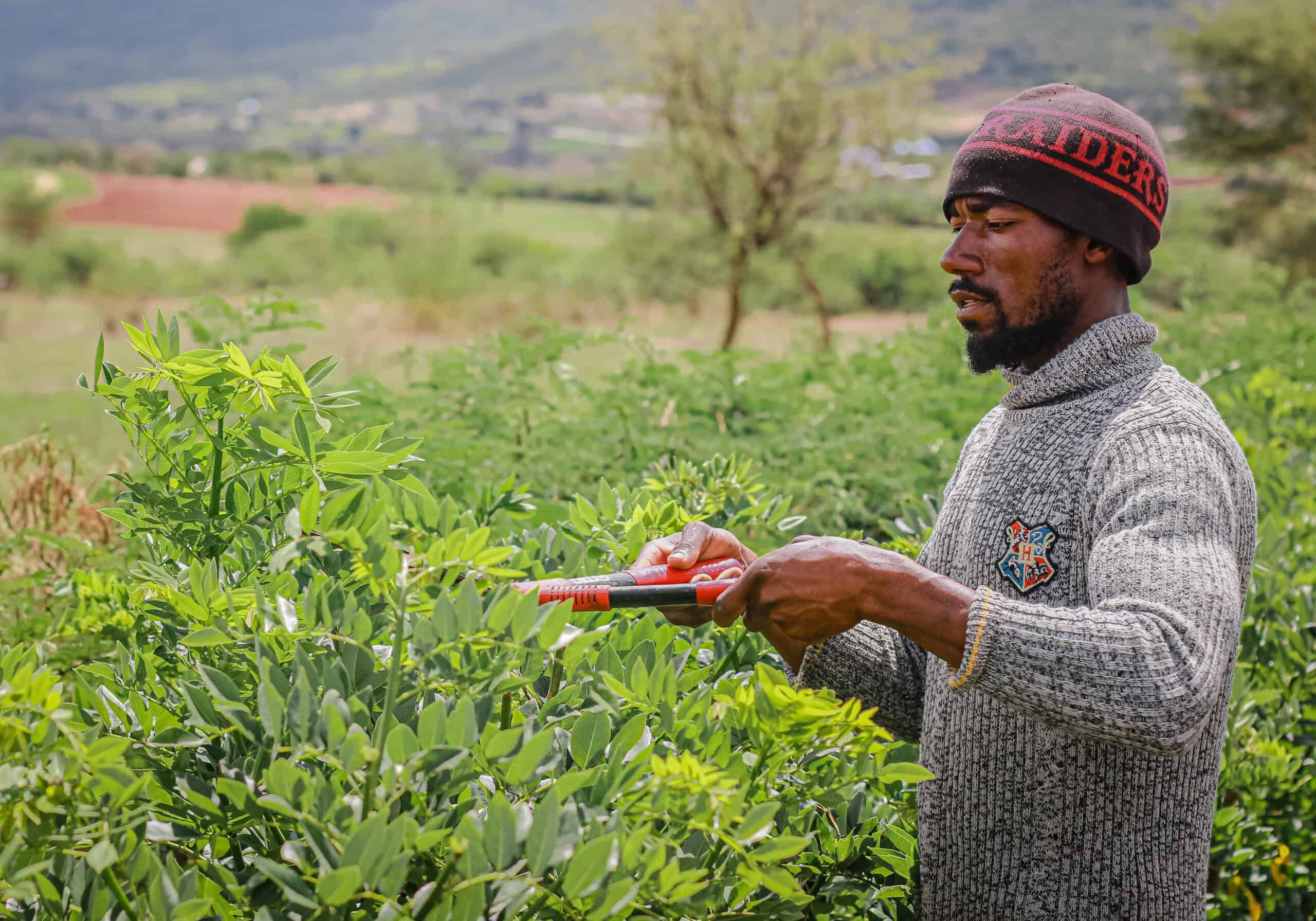In the hilly region of Iringa, Tanzania, Jackson Phanias Mchunga faced an almost impossible challenge: turning a degraded hillside into a productive farm.
An Impossible Challenge
Jackson’s two-acre farm is on a steep slope made up of poor soil and very little vegetation. Traditional agricultural practices caused significant erosion, nutrient loss, and low crop yields. The poor quality of his land made it difficult for Jackson to provide for his family. In 2022, he joined Trees for the Future’s Forest Garden training program to repair his land and secure a promising future for his family. His dedication and use of the Forest Garden Approach not only revitalized his property but also made him a beacon of sustainable farming in his community.
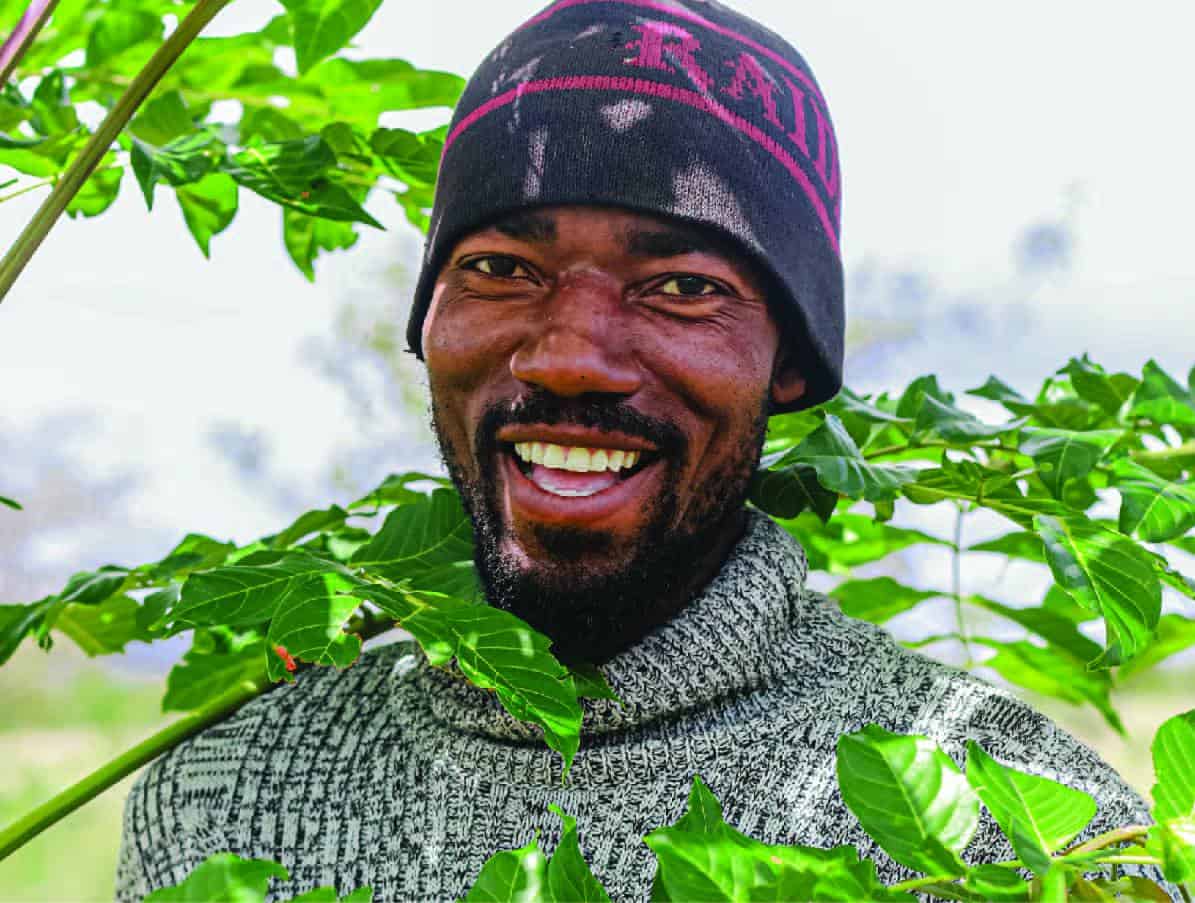
Trees for the Future is a regenerative agriculture training nonprofit working in Tanzania and across East and West Africa. Local staff train farmers like Jackson in the Forest Garden Approach, a sustainable agroforestry technique that restores and protects the land while providing food and income for the farmer year-round.
Finding Success in the Forest Garden
Within two years of joining the TREES program, Jackson now has thousands of trees on his property and dozens of tree and plant species. A living fence surrounds the Forest Garden, offering protection and resources. He is growing agroforestry, timber, fruit, and fodder trees. Each tree plays a part in strengthening Jackson’s farm. Before his Forest Garden, he struggled to find enough grass during the summer months to feed his livestock. Now, his fodder trees supply a steady and nutritious source of fodder, ensuring that his animals were healthy and productive throughout the year.
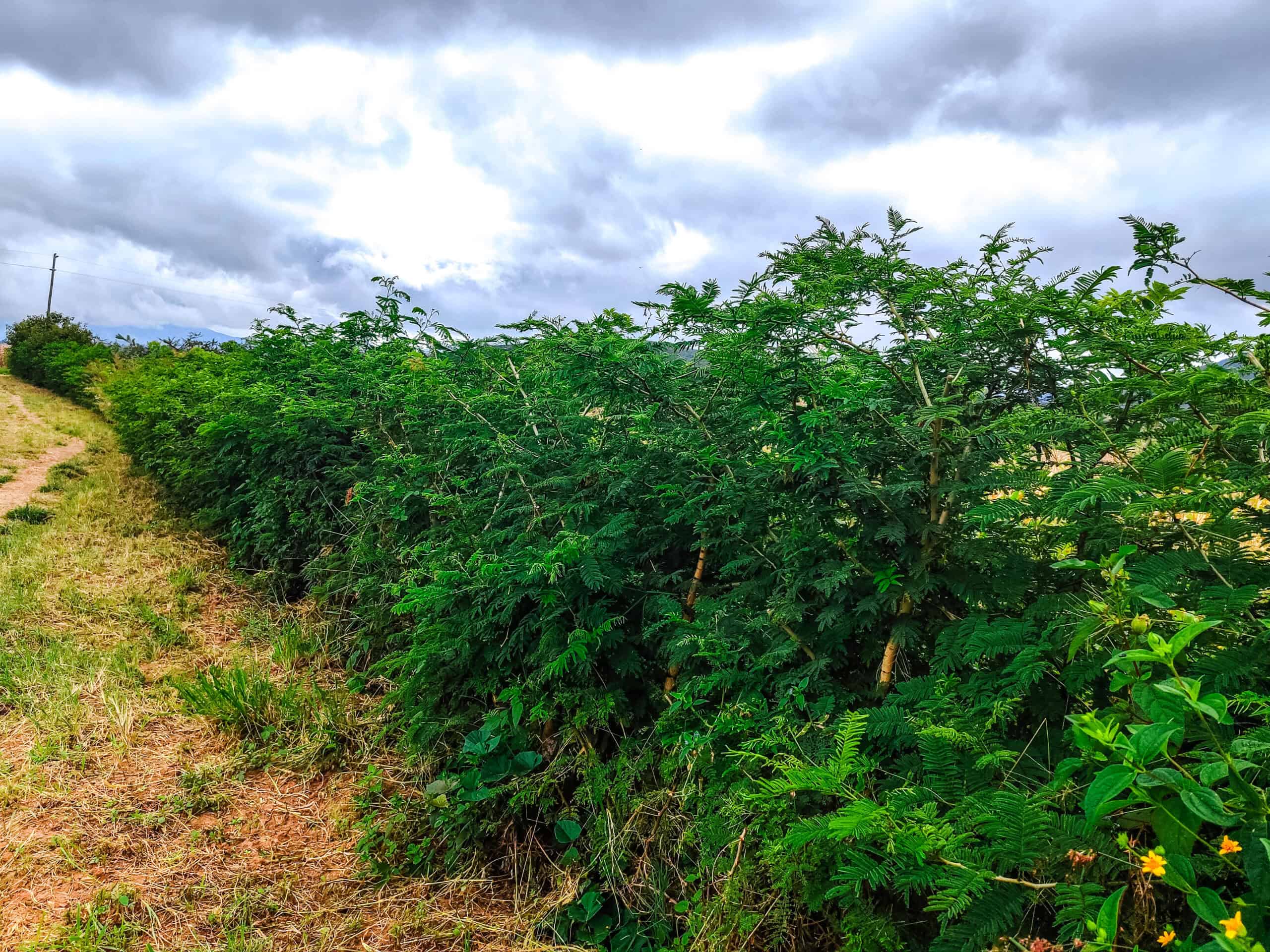
The trees and other nitrogen-fixing plants don’t just provide resources, they help improve the soil and hold it in place on the steep hillsides of Jackson’s farm. As his soil fertility improves, his output improves too. In addition to his fruit tree harvests, he is growing a variety of vegetables to feed his family and earn a steady income at local markets.
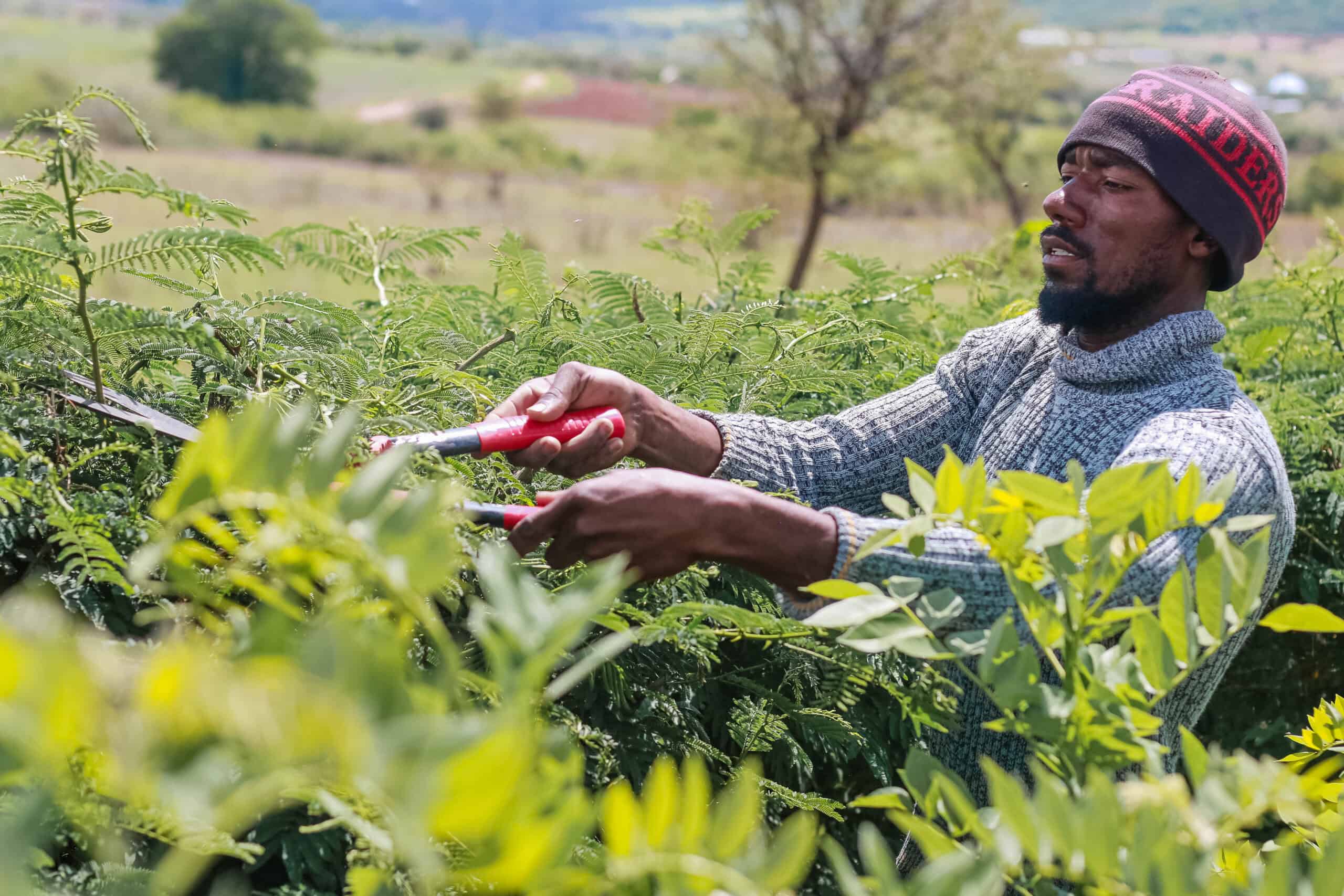
Long-Term Stability
His increased income is helping him build his farming enterprise. He built animal sheds for pigs, chickens, and turkey fowl, allowing him to strengthen his value chain. He is also able to invest in his children’s education, covering reading materials and other school expenses.
Jackson is helping other farmers too. He is the Lead Farmer of his TREES project, which allows him to support and guide other farmers in the program alongside TREES staff.
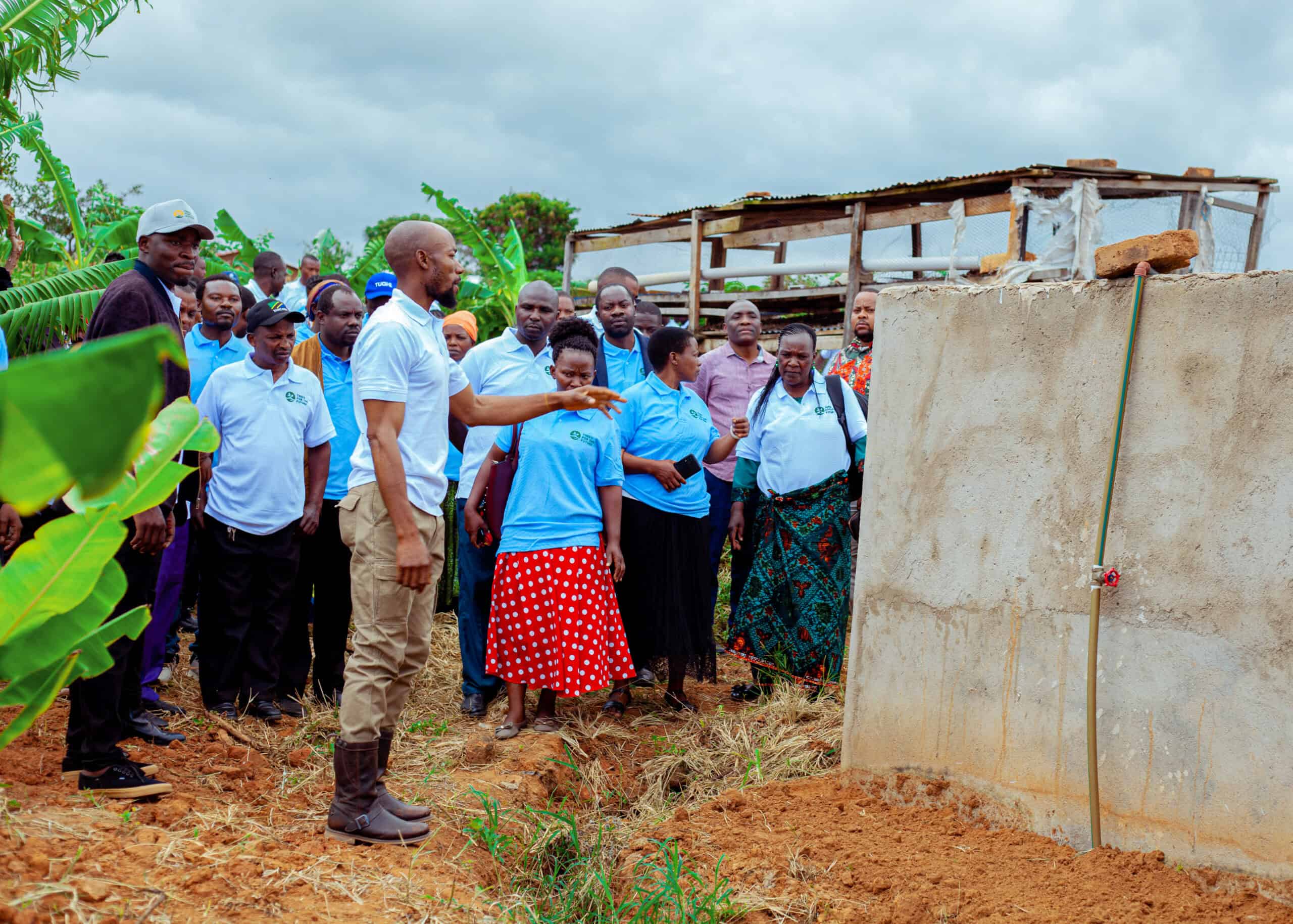
Jackson’s transformation from struggling farmer to guardian of a thriving forest garden demonstrates the potential of sustainable agriculture approaches. His accomplishment proves that even the most difficult settings can be transformed with knowledge, dedication, and a comprehensive agricultural strategy. Today, Jackson not only reaps the benefits of his labor, but he also encourages his community to embrace sustainable habits, ensuring a greener, more affluent future for future generations.
